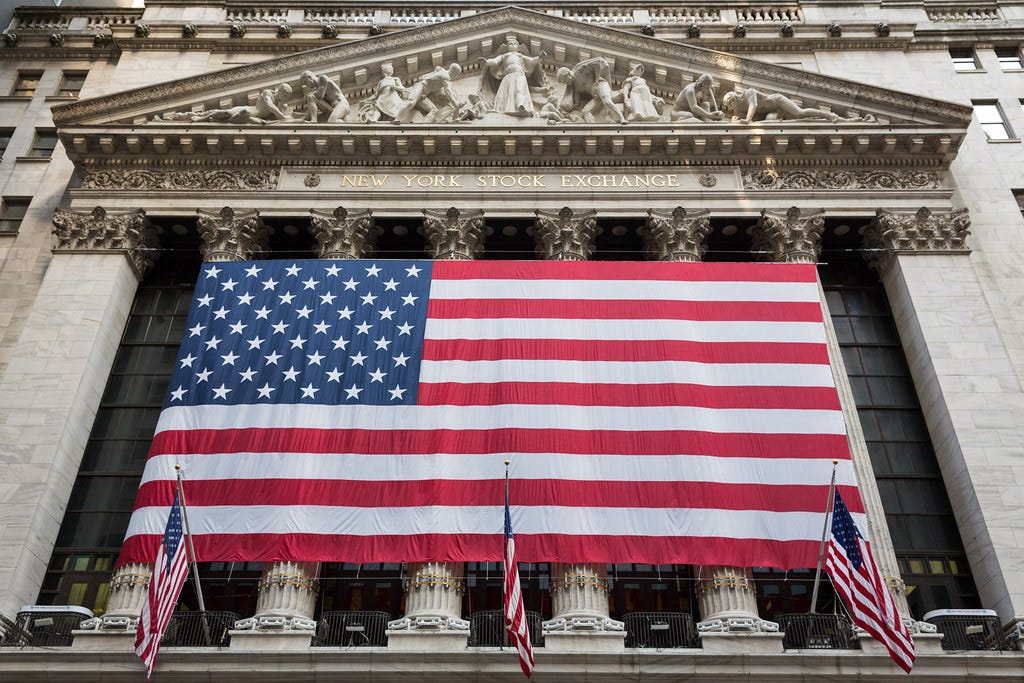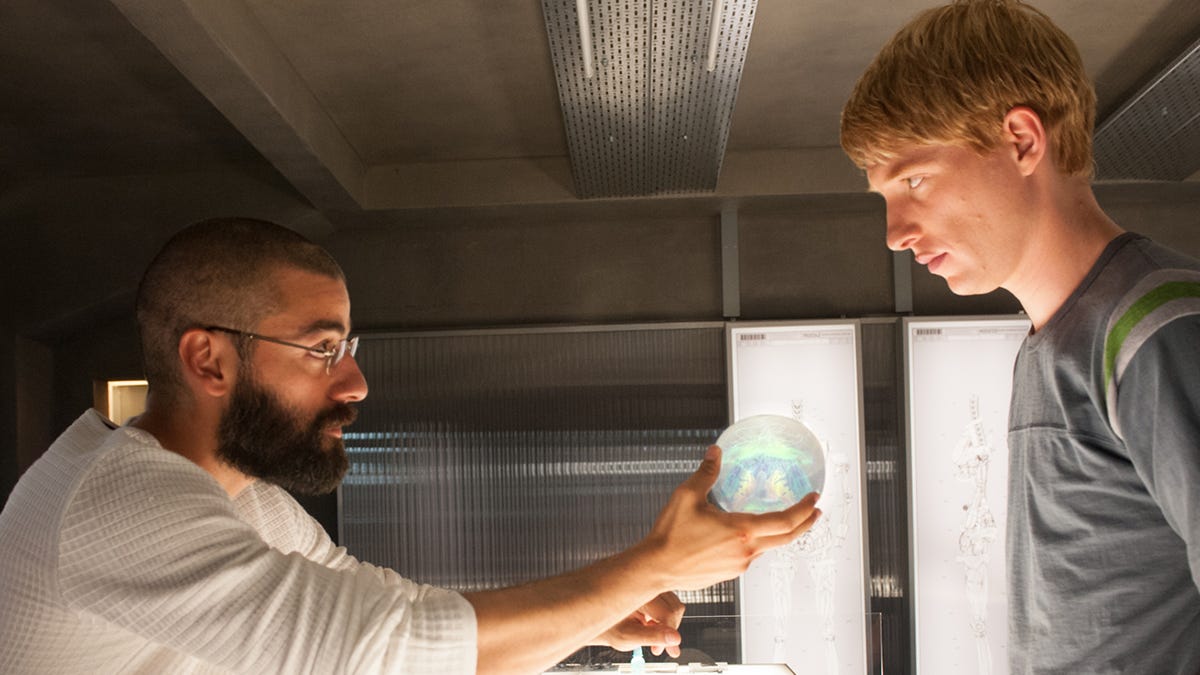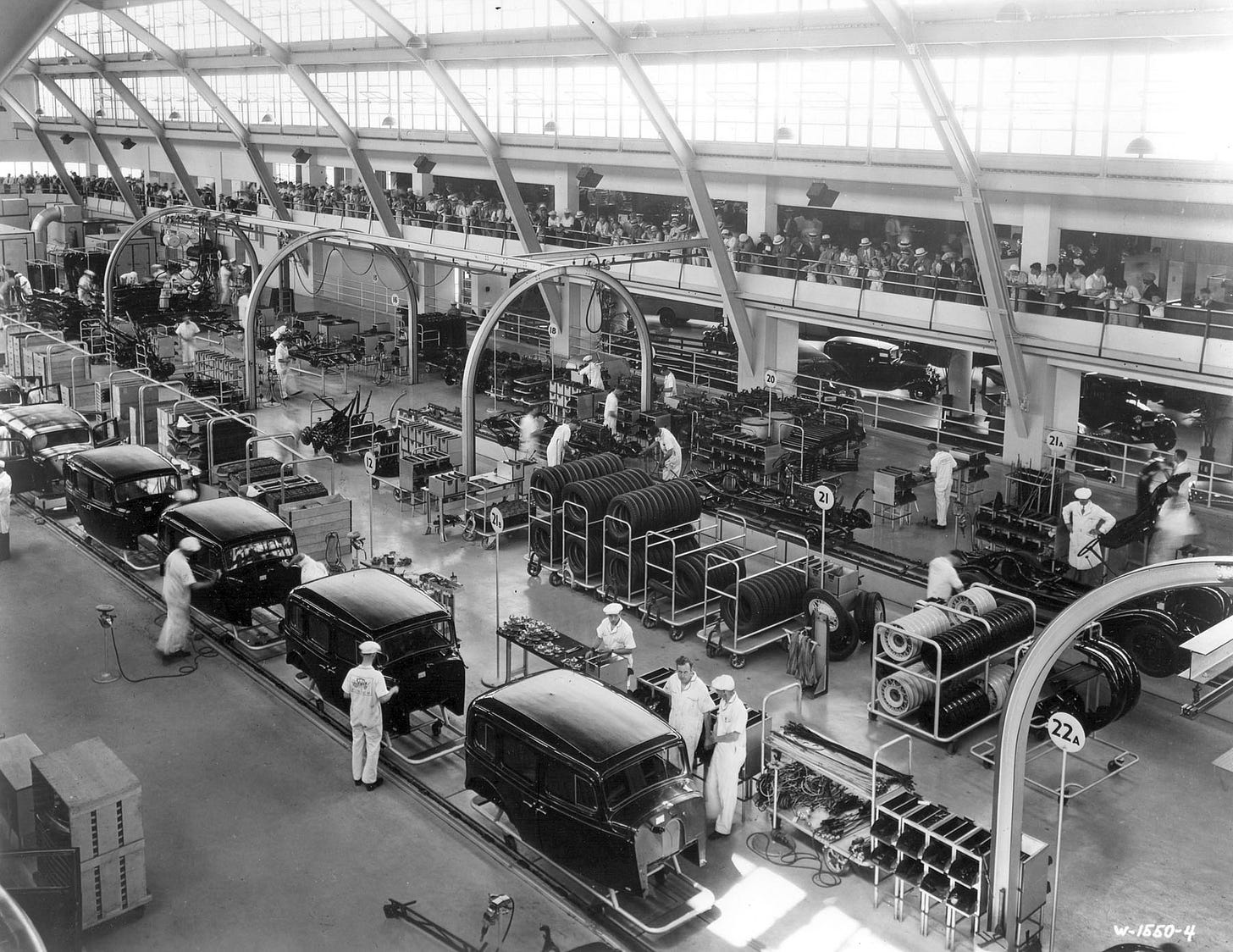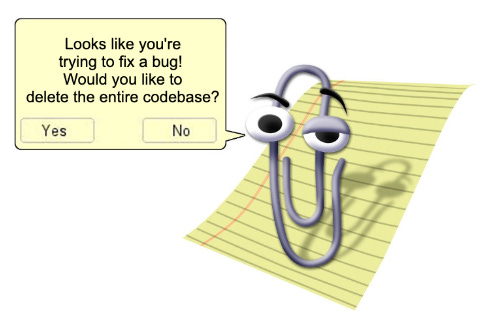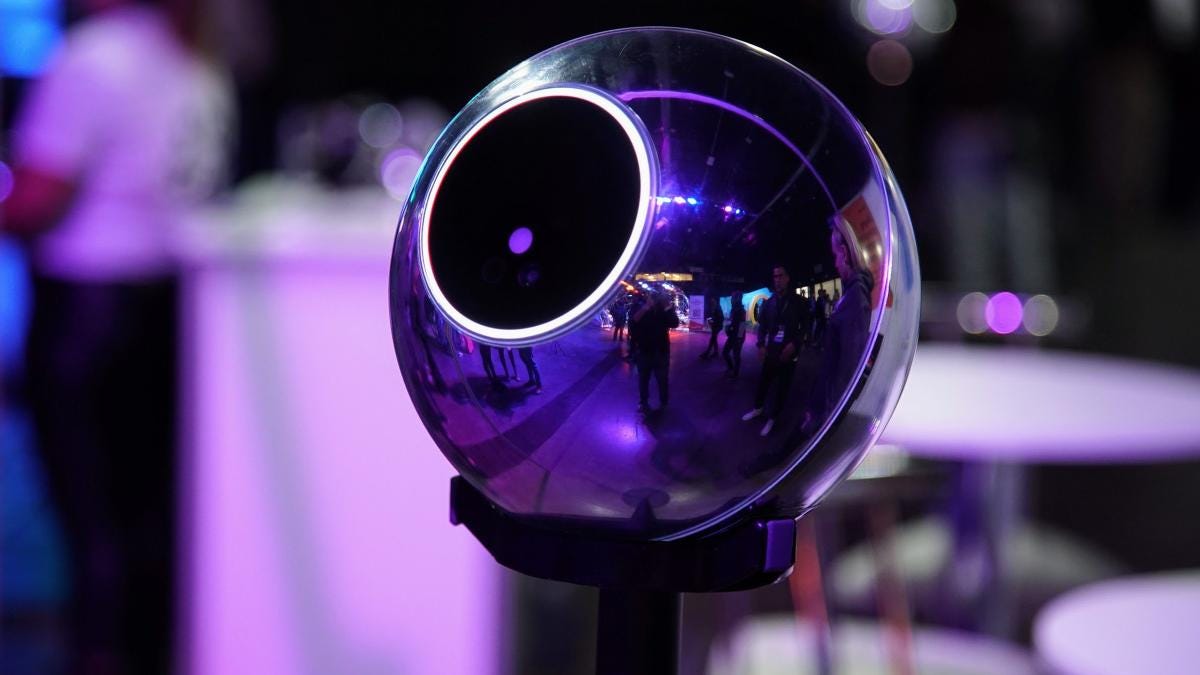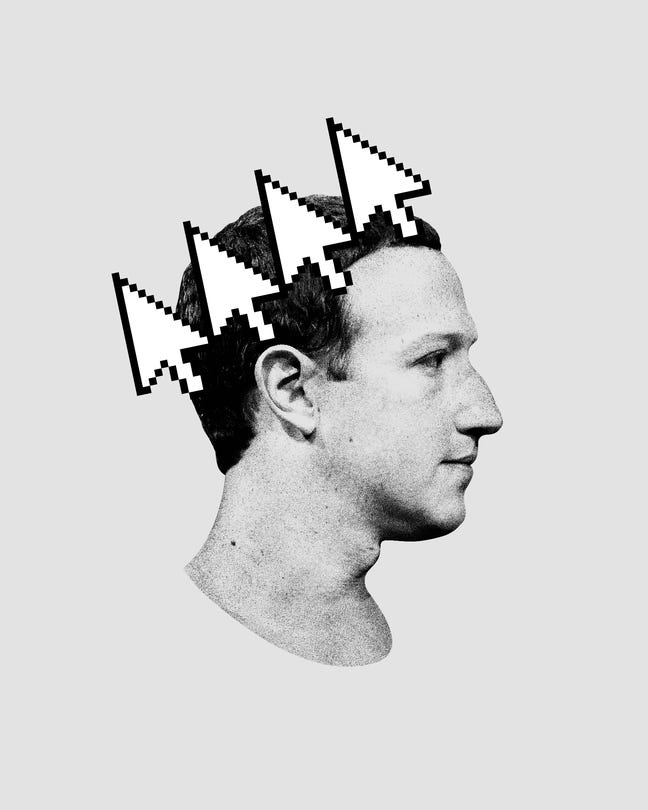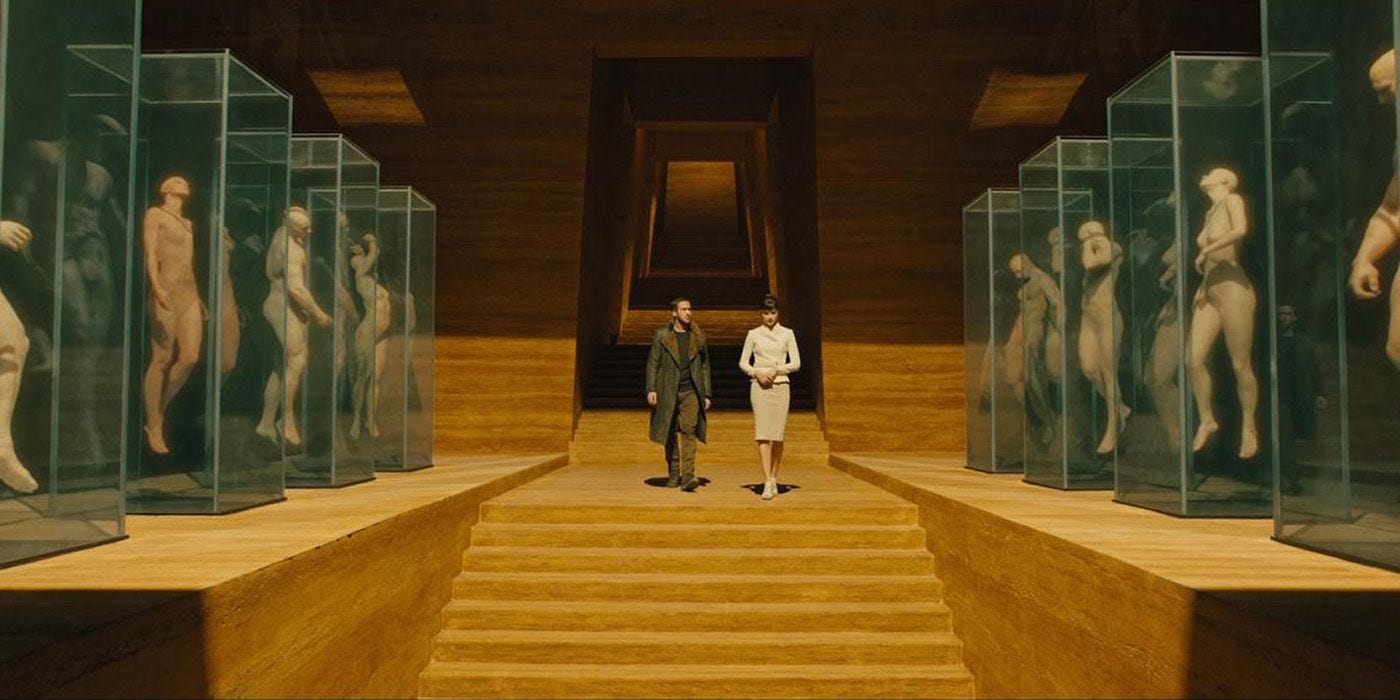Artificial Intelligence, Capitalism, and the Last Race to Reach the "Moneyed" Class
“It was not by gold or by silver, but by labour, that all the wealth of the world was originally purchased”
When I was 16 I began managing a small hedge fund that went long/short traditional equities - and the strategy was pretty simple: bet on America.
I allocated the majority (95%+) of the fund toward S&P 500 ETFs (eg SPY), the military-industrial complex (LMT, NOC, etc.), and T-Bills. The rest of the fund was allocated toward what I viewed as “moonshot investments”.
In 2019, while looking for emerging, “moonshot” tech verticals to allocate funds toward, one that caught my eye was “artificial intelligence”.
As I read through piles of research articles on the topic I remember thinking to myself: “Wait, like Ava from Ex Machina?”
There was one glaring issue: there were no public companies solely dedicated toward developing AI.
The only “recommended” ways to get exposure to this vertical were through Facebook, Apple, Microsoft, Google, and a few other tech companies.
“Boring. I want direct exposure to AI. Who’s actually dedicating significant resources toward this?”
Only two private companies stood out: DeepMind and OpenAI.
While private, I was still curious to understand what they were working on and began reading up on the limited information available.
By the end of a several day binge, a few things became clear:
AI had not seen meaningful progress in decades. Since the early ‘90s we’d been in an “AI winter”.
While no substantial progress had been made, breakthroughs could always be around the corner.
There is a non-zero chance that within my lifetime an artificial general intelligence (AGI) could be built.
And, sure, it is highly improbable to see AGI invented within the next few years, but within 20? 30?
This is the part where I began to get worried.
More importantly, I recognized that tech had matured as an industry. In the last 40-years it had gone from Palo Alto garages to carrying the S&P.
Tech no longer needed Wall Street’s permission to invest in itself. Significant capital could be dedicated - overnight - toward AI.
I remember ranting to my parents about the implications of AI to their jobs as writers; what it would mean for people working in offices, factories, and restaurants; and how it would affect quite literally every other form of labor that has ever - or will ever - exist.
I believed - and still believe - that AI would be the end of modern capitalism.
Many of today’s AI leaders claim that AI will “create new jobs” and usher in a “Golden Age” of human progress. However, I find this exceptionally hard to believe.
They draw analogies to the invention of the assembly line or the computer, but fail to account for one glaring issue: none of these technologies outright replaced human labor.
And, with enough progress, artificial intelligence will.
(Yes, I am aware that robotics have not yet caught up with AI’s progress and over the next several years we will likely see an increased demand for manual labor. But, for how long will that ship sail? To assume manual labor is “safe” is reductive to the argument and short-sighted.)
In the last few months we’ve seen massive layoffs from Microsoft, Google, Amazon, and a number of other big tech companies. But, why?
The S&P continues to roar upward, consumer spending is healthy, rate cuts are expected this year, and earnings reports have been strong. So, what’s happening?
My (not so unpopular) theory is the following:
Like most new technologies, the earliest companies to adopt them are almost always other tech companies. Especially the largest ones.
And the largest tech companies have realized that by arming their workforces - especially developers - with AI tooling they can massively reduce their headcount… which means better margins.
Because, after all, capitalism is a system that rewards efficiency.
Tech bros and chronically online e/acc Twitter users will argue that this is only the result of tech companies over-hiring during the pandemic. And, sure, most tech companies did over-hire - but that’s certainly not the full-picture.
“So, what does this all mean?”
Well, I’ll tell you: close your laptop, pack your bags, and move to the woods. Pick up a copy of Nineteen Eighty-Four and Industrial Society and Its Future. Hell, throw in a copy of Infinite Jest. Learn hunting, fishing, and build a cabin in rural Montana because it’s never been more over.
But, in all seriousness, the implications are massive.
Because of the way capitalism and its efficiency = profit feedback loop works, it could hypothetically self-optimize itself until there is no system left.
After all, it is a system that was explicitly designed around human labor - take that out of the equation and what are you left with?
But, then again, maybe the old programming joke that: “The most efficient way to fix a bug is to delete the code causing the bug” holds some truth in this scenario.
For a moment, let’s pull back the camera a bit and lay out some thoughts:
If human labor is replaced,
How will money circulate?
Who will have money?
To start, let’s answer the question around money’s circulation:
If there is no labor to pay people for, how will people earn money? Where will it come from?
Well, I’ll begin by saying that I think there will always be some form of paid labor but, it will become much, much more rare.
Luxury service jobs are an example of one industry that I think will be fine: like wine sommeliers at high-end restaurants.
Really, any form of labor that serves to convey a “personal” or “handcrafted” (or “human”) experience - for the sake of luxury - will probably be fine.
And, sure, companies will always need a few executives running them. And to be an athlete you’ll probably need to be human. But, I don’t have the energy to list every edge case.
For the sake of simplicity, let’s assume 99.9% of human labor is replaced.
I believe that in this event, the answer is pretty straightforward: the movement of money will become exceptionally limited.
Money will become even more centralized and those in control will have to artificially disburse money to the masses in order to upkeep the image of a fair and working system (or, more importantly, to avoid the guillotine).
A recently popularized term for these “artificial disbursements of capital” is Universal Basic Income.
A lot of people upon hearing this might respond with something like the following: “Dude, that doesn’t sound so bad - I’ll get paid to do nothing?”
And to that I’ll just leave a Ben Franklin quote: "Those who would give up essential Liberty, to purchase a little temporary Safety, deserve neither Liberty nor Safety."
(FYI: He’s on the $100 bill. He’s literally the face of money.)
To put it more bluntly: if you do not own your labor or your income, then you are at the mercy of whoever controls this money - be that public or private entities. This is the point at which we descend into fascism.
Next, let’s try to understand who will actually have money:
For context: this question was what made me decide to leave college and play my hand at the startup roulette wheel. It is the single biggest and riskiest decision I’ve ever made, because the answer frightened me.
This (much like the rest of this article) I can only speculate on. But, the trend I’m starting to notice is toward what some might dub Techno-authoritarianism (or, a “technocracy”).
Effectively, what will be a thinly-veiled authoritarian system that has shed the weight of capitalism and crowned itself king; in this case, the tech industry.
Tech is already able to sidestep politics and finance - so, really, all that’s left to keep it in check is democracy. It is now one of the largest industries in terms of influence, power, and wealth. And, this power is concentrated in the hands of a few hundred individuals.
If you take away the population’s work, you take away its rights. It must kneel at your feet in order to survive - and, if you want to make decisions on its behalf, you must keep it happy. Otherwise, you’ll be left with revolution.
This is where concepts like Universal Basic Income (UBI) have come from (though, the people pushing for UBI won’t admit it). Things like UBI would - theoretically - keep the population happy while its right to work has been stripped.
In a world where your merit, skill, or effort cannot be recognized in the form of a clear, hierarchical labor ladder that’s free to climb, then what options will be available to you? How do you create a better life for yourself?
The simple answer is: you don’t. There won’t be any options. Your life will be as good as your UBI will allow for.
There will only be two classes of people in a post-labor world:
1. The “Moneyed”
2. Everyone else
By this, I mean that at a certain point you will have either made your money - and escaped slavery-by-transitive-property - or you won’t have. You will either be of a class that needed labor to sustain itself, or you won’t be.
Technological advancement and population growth have already proven this to be true - you can’t just move West, buy a plot of land, start a farm, and retire with enough money to support several generations of children.
Today’s world is ultra-competitive because there’s simply more people fighting for an ever-shrinking slice of the pie. The wealth gap has grown exponentially and will continue to grow at an unprecedented rate.
The top 1% of households already control 43% of global wealth.
I currently live in San Francisco and a lot of my friends work in tech - whether for a company, or running their own. And, while they’re all in entirely different verticals, there is this constant, low-frequency hum - this genuine fear of AI - that lingers in almost every work-related conversation.
Not everyone I speak to knows why they’re afraid of it; they don’t know whether they’re afraid of “AI” itself; if they’re afraid of what the people in power could do with AI; or whether they’re just afraid of the unknown and its implications.
Regardless, the fear is shared. There is a deep, instinctual fear response being triggered that I don’t think we as a species have felt in a long time: encountering another, potentially adversarial, and equally (or superiorly) intelligent species walking the Earth among us.
I believe that this fear stems mostly from the threat of competition; how will one stand out from an autonomous agent willing to work 24/7/365 that doesn’t need food, water, housing, clothing… or basic rights?
Wealth, prestige, and influence will be the only differentiators left. And, I think it’s silly to believe that any of these things would be achievable in an environment where you would be unable to even compete.
In my eyes, the door is closing and we are witnessing the final race to the “moneyed” class - the scratching and clawing to onboard the remaining lifeboats of an already sinking ship.
You will either be at the mercy of UBI or have managed to create enough wealth for yourself to decide your own destiny.


